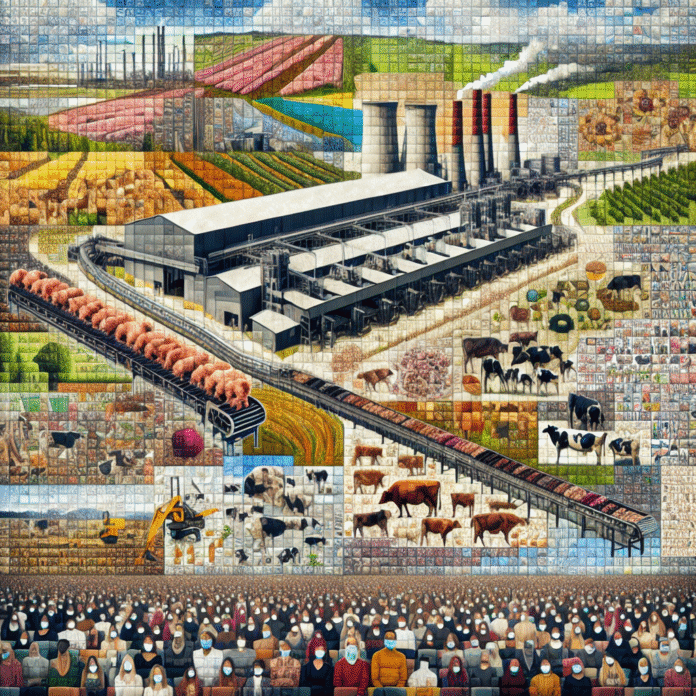The Impact of Factory Farming on Environment and Public Health in Europe
The Environmental, Social, and Public Health Impact of Europe’s Dependency on Factory Farming
Europe’s reliance on factory farming has profound effects that extend beyond mere food production. This industrialized approach to agriculture raises significant concerns regarding environmental sustainability, social equity, and public health.
Environmental Consequences
Factory farming is notorious for its heavy environmental footprint. The intensive concentration of livestock leads to excessive waste production, which can contaminate soil and water sources. Manure runoff is a major contributor to water pollution, leading to the degradation of aquatic ecosystems and the proliferation of harmful algal blooms.
Moreover, factory farms are responsible for a substantial amount of greenhouse gas emissions, particularly methane and nitrous oxide, which are far more potent than carbon dioxide. The livestock sector accounts for approximately 14.5% of global greenhouse gas emissions, with Europe’s contribution being significant. The expansion of factory farming also drives deforestation as land is cleared for feed crops, further exacerbating climate change and biodiversity loss.
Social Implications
The social ramifications of factory farming are equally concerning. These industrial operations often displace small-scale farmers, threatening rural economies and community cohesion. The concentration of livestock production in a few large facilities can lead to monopolies that undermine local food systems and diminish consumer choice.
Factory farms are also associated with poor working conditions. Employees often face long hours, low wages, and exposure to hazardous environments, leading to a cycle of exploitation. Moreover, the concentration of animals in confined spaces raises ethical questions regarding animal welfare and the rights of workers in the industry.
Public Health Risks
The public health implications of factory farming cannot be overlooked. The use of antibiotics in livestock to promote growth and prevent disease contributes to the emergence of antibiotic-resistant bacteria, posing a significant threat to human health. This resistance can lead to infections that are difficult to treat and increase the burden on healthcare systems.
Additionally, the close confinement of animals creates ideal conditions for the spread of zoonotic diseases—illnesses that can jump from animals to humans. The COVID-19 pandemic highlighted the risks associated with large-scale animal farming, as it has been linked to the outbreak of various infectious diseases.
Policy Considerations and Future Directions
Addressing the multifaceted challenges posed by factory farming requires a comprehensive policy response. European nations must prioritize sustainable agricultural practices that promote animal welfare, environmental stewardship, and public health. This includes transitioning towards agroecological methods, supporting small-scale farmers, and implementing stricter regulations on antibiotic use in livestock.
Consumer awareness also plays a crucial role in driving change. By opting for sustainably sourced products, individuals can support more ethical farming practices and help mitigate the negative impacts associated with factory farming.
In conclusion, Europe’s dependency on factory farming presents significant environmental, social, and public health challenges. A shift towards more sustainable and equitable agricultural practices is essential for safeguarding the future of the continent’s food system and the well-being of its inhabitants.


